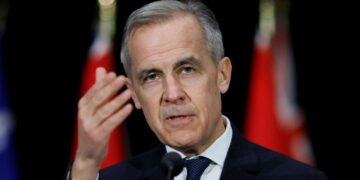More than a hundred current BBC Journalists and hundreds of other media professionals have signed an open letter accusing the BBC of acting like a public relations arm for the Israeli government. They are also calling for the removal of BBC board member Sir Robbie Gibb, citing serious concerns about conflict of interest and editorial bias.
The letter, addressed to BBC Director-General Tim Davie and the entire board, follows a series of controversial decisions that critics say show the broadcaster has lost its impartiality especially in its coverage of Gaza.
Among the high-profile signatories are actress Miriam Margolyes, acclaimed filmmaker Mike Leigh, actor Charles Dance, and historian William Dalrymple. Together with many journalists and media workers, they argue that the BBC’s reporting on the Gaza conflict has “fallen short” of its own editorial standards and fails to reflect the actual situation on the ground.
The authors of the letter express deep concern over the BBC’s decision to cancel a previously commissioned documentary, Gaza: Doctors Under Attack, which will now be shown by Channel 4 instead. The BBC said it dropped the documentary to avoid the “perception of partiality.”
But the signatories aren’t buying that. “This appears to be a political decision,” the letter states. “It’s not reflective of the journalism in the film, and only adds to the feeling many of us have that the BBC is terrified of being seen as critical of Israel.”
This isn’t the first time the BBC has come under fire. The broadcaster also faced backlash after airing a live performance at Glastonbury by punk-rap duo Bob Vylan, which included anti-Israel chants. That decision along with pulling the Gaza documentary has renewed criticism about the BBC’s handling of sensitive issues in the Middle East.
Much of the frustration centers around Sir Robbie Gibb, a former BBC political editor who also served as communications director for ex-Prime Minister Theresa May. More controversially, Gibb helped lead the 2020 takeover of The Jewish Chronicle, a publication the letter accuses of regularly publishing “anti-Palestinian and often racist content.” He remained a director of the paper until August 2024.
The letter describes Gibb’s role on the BBC board, particularly on the editorial standards committee, as “untenable.” It accuses him of having an ideological bias that conflicts with the BBC’s duty of impartiality.
Read More: ICC Appoints Sanjog Gupta of India as New CEO
“For many of us,” the letter says, “it feels like we’re hitting a wall. Decisions are being made at the top with little explanation or transparency, and those choices are affecting the BBC’s credibility and our audiences.”
The letter goes on to say that the BBC has failed to provide meaningful analysis of the UK government’s role in the war on Palestinians, or to properly cover the issue of weapons sales and their legal implications. “These are vital stories,” the signatories write, “but they’re being broken by other outlets not us.”
Staff members also allege a double standard within the BBC: while some have faced criticism or even censorship for posting news articles that are critical of Israel, Gibb remains in a powerful position despite his openly stated views and past affiliations.
“There’s no transparency,” the letter claims. “We can’t in good conscience ask licence fee payers to ignore Sir Robbie Gibb’s clear ideological leanings while rank-and-file staff are being policed for much less.”
In response, a BBC spokesperson said internal discussions among editorial staff are a normal and essential part of the process and that the broadcaster always welcomes staff feedback.
On the issue of Gaza coverage, the spokesperson said, “The BBC is fully committed to impartial reporting. We have delivered breaking news, in-depth analysis, and award-winning documentaries like Life and Death in Gaza and Gaza 101.”
Still, the open letter makes one thing very clear a growing number of voices within and outside the BBC believe the broadcaster is failing to meet its own standards when it matters most. And as the pressure builds, so does the demand for answers.


















